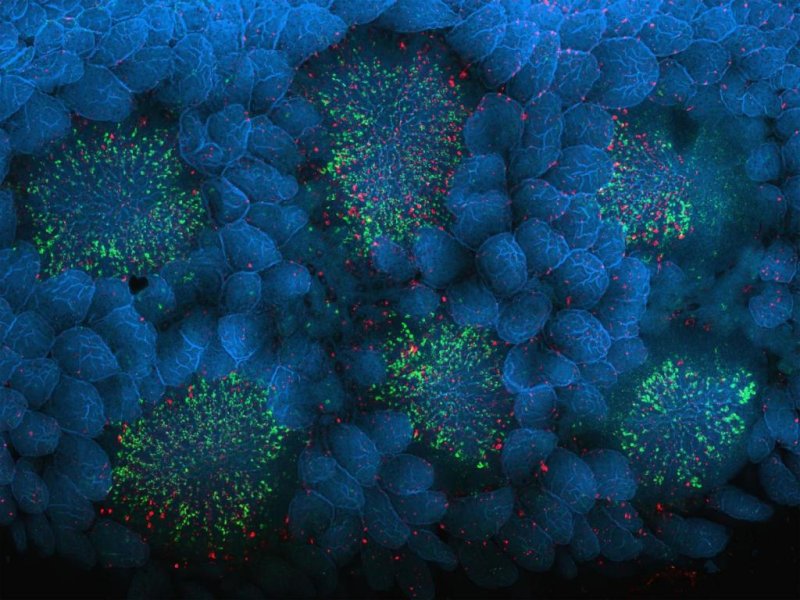This magnified image of the small intestine shows specialized structures called Peyer's patches -- which are part of the body's immune system and are used by deadly proteins called prions to invade the rest of the body. Photo by Neil Mabbott and David Donaldson/University of Edinburgh
EDINBURGH, Scotland, Aug. 4 (UPI) -- Researchers have discovered how prions hijack a part of the immune system to spread from the gut, through the body, and to the brain where they cause deadly conditions such as mad cow disease in cattle and Creutzfeldt-Jakob Disease in humans.
Understanding how prions, proteins that spread among humans and animals when they consume contaminated meat, move throughout the body could help doctors diagnose infection earlier.
Prions are known to move through the body, making their way to the brain, where they disrupt neural activity, causing memory impairment, personality changes, and difficulties with movement, eventually killing their host. There is no cure for prion infection.
Researchers found that prions, spread most often orally though contaminated meat, arrive in the small intestine and begin to use the immune system against itself. Prions, which are not necessarily alive like bacteria, are misfolded proteins that propagate partially by converting other proteins into prions -- teaching other proteins to mimic their own shape.
Researchers fed mice prions, watching as the proteins entered and began building up inside of Peyer's patches, specialized structures inside the lining of the small intestine that are part of the immune system's defense against bad food. The build-up causes an infection, which assists the prions to begin moving through the body.
The researchers found that by the time prions infected the large intestine, they also could be detected in the spleen and lymph nodes in the mice.
"Whether all individuals with evidence of prion infection in their gut go on to develop neurological disease is not known," said Neil Mabbot, a professor at the University of Edinburgh, in a press release. "We need a greater understanding of what factors enhance our susceptibility to prion diseases so that we can put in place safeguards to prevent these conditions from spreading in people and farmed animals."
The study is published in Journal of Virology.















